Search Engine Optimization (SEO)
Search engine optimization is the process of optimizing/tweaking text, images and videos in order to improve their organic search engine visibility.
A 3 minute introduction to ‘What is Search Engine Optimization’ - https://www.youtube.com/watch?v=hF515-0Tduk
We optimize our websites so that search engines can index them to identify where they should rank in relation to user searches.
Important Ranking Factors
Uses of Keywords: keywords are the search queries that users type into search engines when they are looking for specific content. When you’re aiming your content at a specific keyword, you should try to include this in the title, content, permalink (URL), images etc.
Content Length and Quality: Search engines place a lot of emphasis on the use of original and valuable content. It is advised to write at least 300 words of original content for a blog post. Search engines can identify duplicate content and it can effect your ranking heavily.
Optimizing everything: it isn’t just your text content that needs to be optimized, images and videos also need to have relevant keyword tags in order to achieve a high ranking.
Internal and Outbound links: you will want to include links to other content on your website as well as outbound links to sources or relevant content on other websites. You should try to limit the amount of outbound links otherwise Google will identify you as a bridging website which will affect your ranking.
Off-Page Ranking: Getting links to your content and website from other trusted website is a big plus for SEO. Trusted websites that link back to yours will tell Google your content is valuable and will improve your ranking. Social media also plays a big role. When active and popular social media accounts link to your website, this also favors your ranking.
Other Factors: When you submit your sitemap, it tells Google how many pages are on your website and how they link together, making it easier for Google to index your website. Having a mobile optimized website is an important factor. We will be using mobile responsive themes when making our websites that means they should work well on mobiles. Your page speed plays a big role; try to avoid large images and videos as well as hundreds of unnecessary pages. We use compression plugins to reduce our image sizes and caching plugins to improve overall performance.
Keyword Research
Earlier on, we carried out some keyword research to find a name that wasn’t popular in order for Emaptus to rank high on Google. When aiming your content at specific keywords, you will want to research popular keywords in your topic. Pick a short keyword phrase at first and enter it into the keyword tool at
https://adwords.google.co.uk/KeywordPlanner
We already mentioned how to do volume data keyword research at the start of the book. We will now show how to search for data on websites, categories and trends.
To be able to use the Google Keyword tool effectively, you will have to create a Google Adwords account. This involves entering your billing details but you will not be charged until you create a campaign. We are only using the tool to research keywords so will not be paying anything. I created a campaign with a £0.10 budget, and then remove the campaign when on the Adwords dashboard.
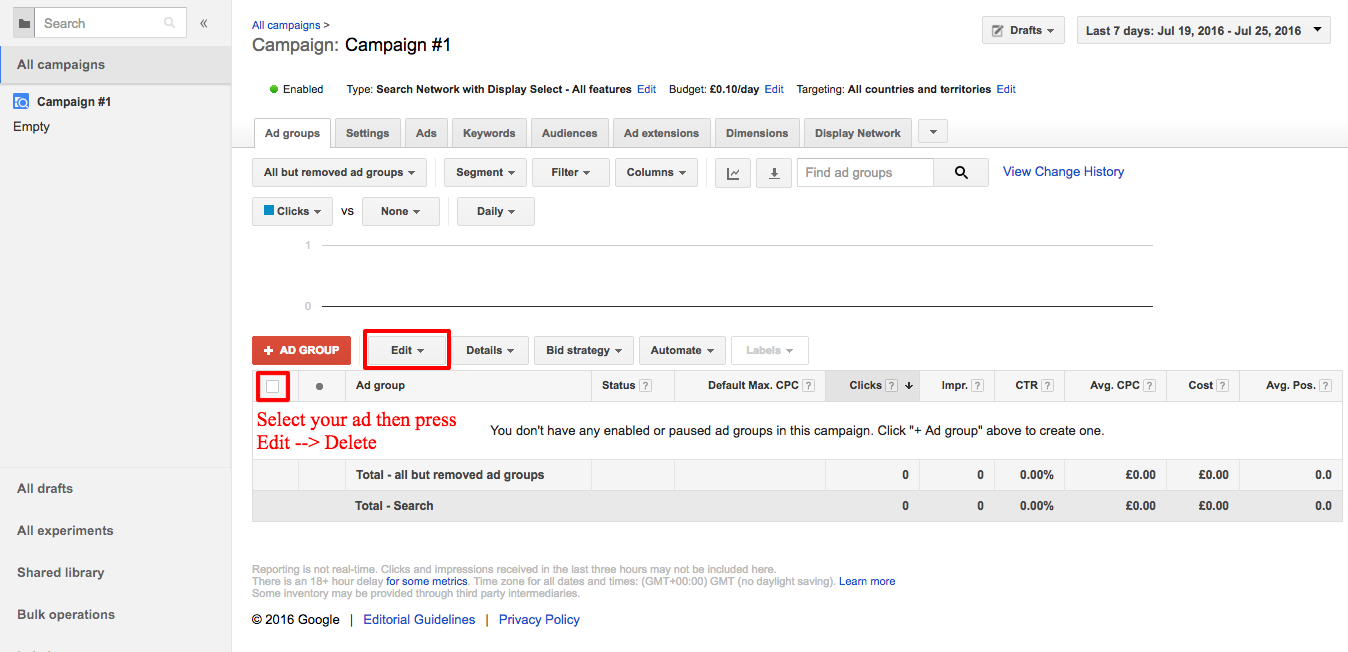
From here, hover over Tools at the top and select Keyword Planner
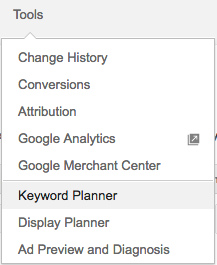
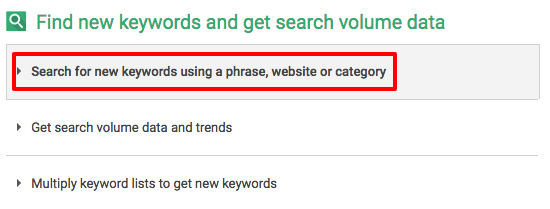
If you wanted to blog about or review TV shows for example, you could enter the following information.
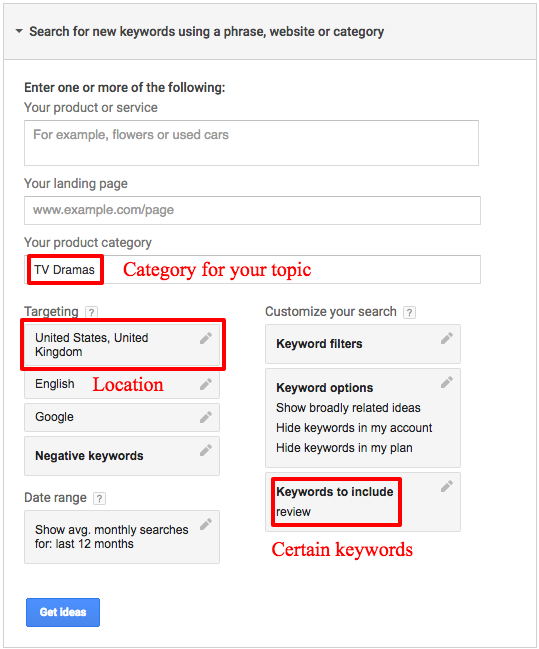
This will give you a list of popular searches for TV shows. You will want to choose a search with low competition to have a higher chance of ranking on the top page.
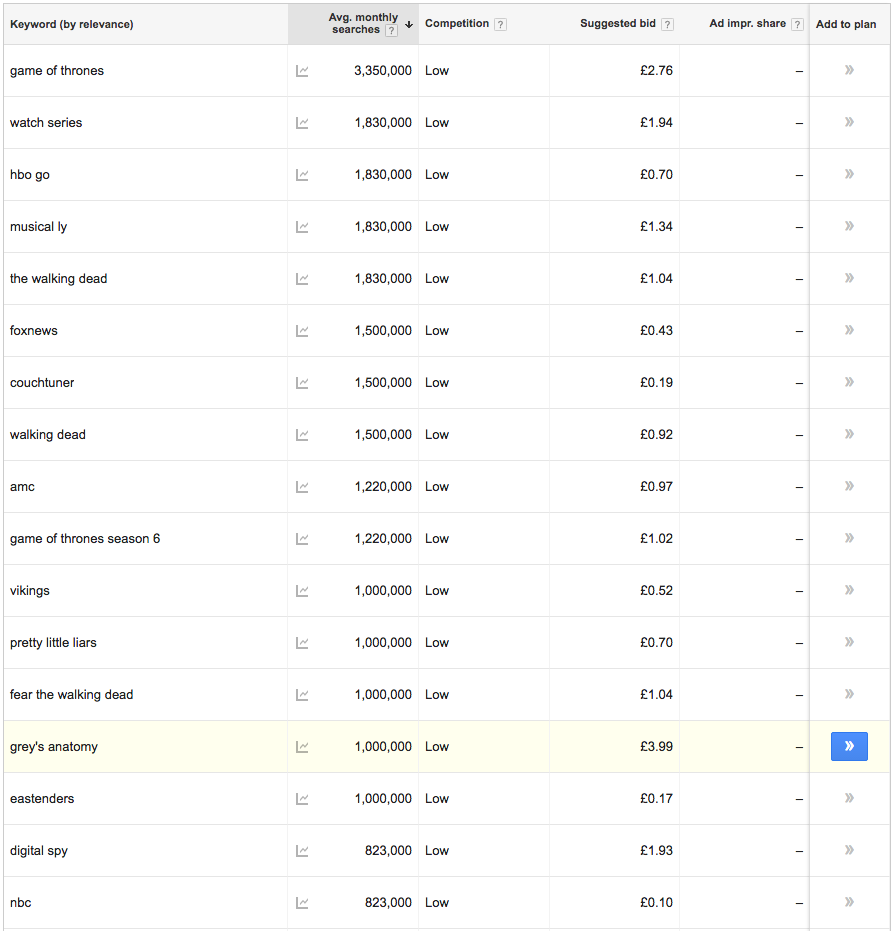
When you find a topic you would like to blog about, switch from Keyword Ideas to Ad group ideas in order to see groups of popular searches for a particular keyword.

For example, clicking on Breaking Bad will give you the following

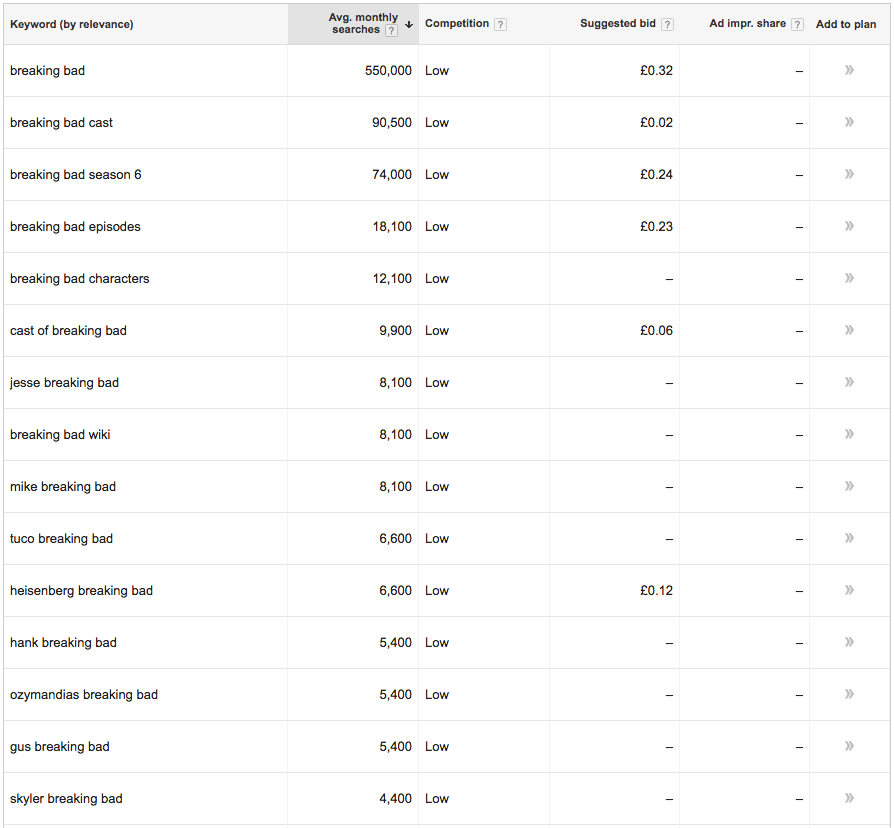
This is just an example of how to find popular search terms that you may want to blog about. I suggest reading the following articles to gain a greater understanding of keyword research and further SEO concepts.
Hubspot – How to do keyword research for SEO: a beginner’s guide:
http://blog.hubspot.com/marketing/how-to-do-keyword-research-ht#sm.0001kstzwq186ydchrl5ij66jo7m0
SEO Nick – How to do keyword research for SEO:
http://www.seonick.net/keyword-research/
Link Research Tools – 20 SEO link-building tips for 2016:
http://www.linkresearchtools.com/case-studies/link-building-techniques/









